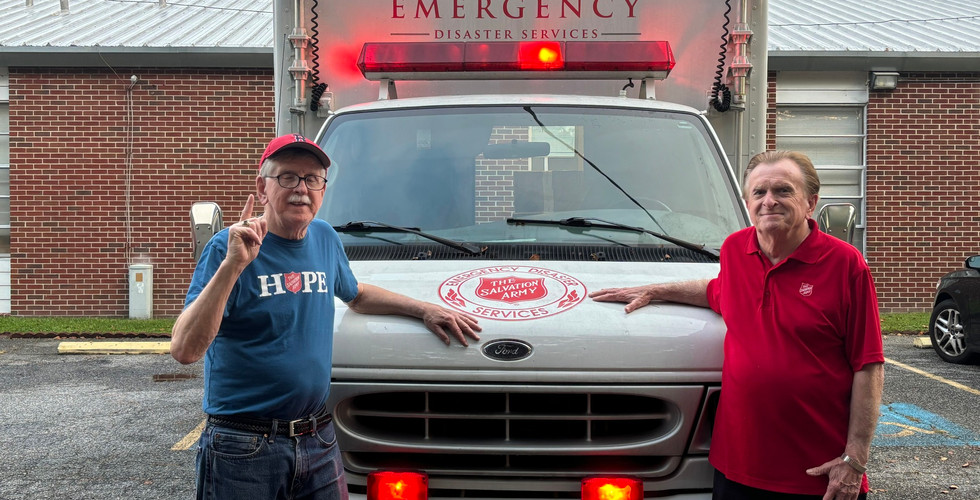• Hurricane Helene response

Teams from the Salvation Army Emergency Disaster Services USA were prepared and ready to serve and offer physical, emotional and spiritual support as soon as safely possible after Hurricane Helene made landfall in Florida’s Big Bend area on 27 September. For residents there, this was their third hurricane in 13 months.
More than 135 people have lost their lives, and the storm surge, wind damage and inland flooding resulting from the hurricane have been catastrophic – flooding neighbourhoods, stranding residents and destroying homes, infrastructure and farmlands in Florida, Georgia, South Carolina, North Carolina, Virginia and Tennessee.
Five divisions in the Southern Territory are actively responding in six states throughout the south-east. To date, teams have served 43,137 hot meals, 11,597 meal kits, 35,555 drinks and 19,579 snacks from 60 active mobile feeding units.
In Florida, Emergency Disaster Services personnel set up bunkhouses, shower trailers, generators, and all the equipment needed for their response, including a meal service. In addition to food, crews were available to listen as resident after resident spoke about the collective trauma the region is reliving.
Jennifer, who is still living in a Federal Emergency Management Agency trailer (caravan) after Hurricane Idalia destroyed her home in August 2023. She broke down in tears as she walked up to The Salvation Army team. She spoke of how she had once again found herself in the dark, searching for phone service, desperate to figure out where and if help was available.
“I can’t believe we are going through this again,” she whispered. “How is this even real?” After receiving a hug and meal kits and the comfort of knowing she was safe, Jennifer continued. “The Salvation Army is what pulled me through Hurricane Idalia. I knew I could find you again, and I would be okay.”
Jennifer spoke of her favourite place to take her children for a special treat, now only cinder blocks. Other residents described entire neighbourhoods levelled, empty beaches with posts that used to hold houses, and the repeated refrain: “How did it happen again?”
The Salvation Army remains committed to providing not only meals and water to the residents of the Big Bend communities, but also emotional and spiritual care as they process this collective hardship. “Thank you for showing up,” Jennifer said, smiling as she walked away. “You made us feel like we’re not alone.”
Some information is this article is courtesy Michelle Hartfield, Salvation Army Emergency Disaster Services USA.
For more photos, click on the arrow below.


























